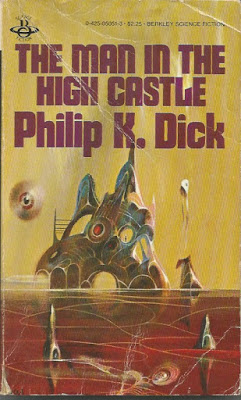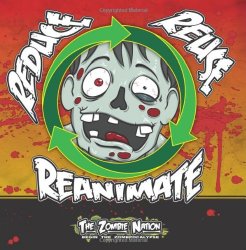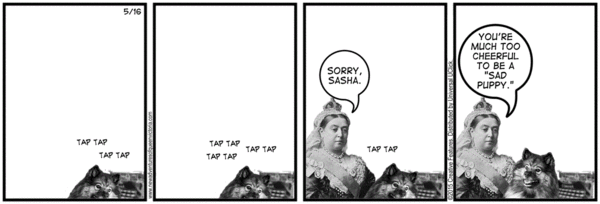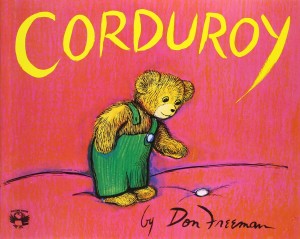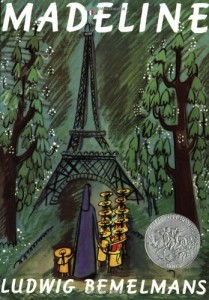aka The Puppy Who Sold the Moon
https://twitter.com/damiengwalter/status/598887999867203585
The field for today’s royal rumble includes John C. Wright, Eric Flint, Vox Day, Tom Knighton, Spacefaring Kitten, Wayne Borean, Lis Carey, Lisa J. Goldstein, T.C. McCarthy, Kevin Standlee, Alexandra Erin, Thomas A. Mays, Brandon Kempner, Rick Moen, Peace Is My Middle Name, Bruce Baugh and Damien G. Walter. (Title credit to File 770 contributing editors of the day Whym and Rev. Bob.)
John C. Wright
”Suggested Reading for Sad Puppy Backstory” – May 14
Some of you came in to this theater late, and did not catch the first act.
For those of you puzzled or dazed or disgusted with the goings-on, allow me to provide a partial (and admittedly partial) list of the backstory on Puppy Related Sadness.
From Larry Correia you can get links to his original announcements of Sad Puppies 1,2,and 3. Allow me, at the risk of seeming egomaniacal, of listing only my own contributions to the movement and the columns leading up to it.
[Post includes around a dozen selected links.]
Eric Flint
“And Again On The Hugo Awards” – May 14
[Again, just a small excerpt of a long and wide-ranging post.]
I think one side in this dispute is wrong—that’s the side championed by Brad and Larry. I think that, not because I think the Hugo awards don’t have a lot of problems—I do, and I explained those at length in my first essay—but because their analysis of the problem is so wrong as to be downright wrong-headed. But I don’t think they pose a mortal threat to social justice, western civilization, science fiction or even the Hugo awards themselves.
Why did they launch this brawl and keep pursuing it? Well, I’ve always been a devotee of Napoleon’s dictum: “Never ascribe to malevolence what can be adequately explained by incompetence.” I don’t think there was anything involved except that, driven by the modern American right’s culture of victimization—they are always being persecuted; there’s a war on white men, a war on Christmas (no, worse! a war on Christians themselves!), blah blah blah—they jumped to the conclusion that the reason authors they like weren’t getting Hugo awards or even nominations was because of the Great Leftwing Conspiracy against the righteous led by unnamed Social Justice Warriors—presumably being shuttled around the country in their nefarious plots in black helicopters—and off they went.
If they’d simply said: “We think the Hugos have gotten too skewed against popular authors in favor of literary authors,” there’d have still been a pretty ferocious argument but it never would have reached this level of vituperation.
But simply stating a problem wasn’t good enough for them. No, following the standard modern right-wing playbook, SOMEBODY MUST BE TO BLAME.
Enter… the wicked SJWs! (Whoever the hell they are. They’re to blame, dammit.)
Vox Day at Vox Popoli
“Islands in a sea of rhetoric” – May 14
I stopped commenting at File 770 as it proved to be another exercise in demonstrating the truth of Aristotle’s dictum about those who cannot be instructed. Give them dialectic and they shamelessly attempt to pick it apart, some honestly, most dishonestly, while constantly declaring that any errors or falsehoods on their part are irrelevant. Give them rhetoric to meet them at their level and they either cry about it or concoct pseudo-dialectic to explain why it’s not valid.
VD: SJWs always lie. SJW: I told the truth once back in 2007. See, you’re totally wrong. Your whole argument is disproved. You are a bad person. DISQUALIFIED!
But the ongoing Hugo coverage still makes for interesting reading, particularly as the few remaining commenters possessing intellectual integrity one-by-one throw up their hands and stop trying to force the relevant facts through the SJW’s cast-iron skulls. A pair of neutrals recounted typical experiences, as one of them juxstaposed his treatment at various Puppy sites versus SF-SJW Central:
Tom Knighton
“One problem with the Hugos that will never be solved?” – May 14
I’m sorry, but less than 50 votes got nominations on the ballot? With such low numbers getting a work nominated, you can tell that there just aren’t that many people nominating. This puts the fate of the Hugos in the hands of a few, which makes it possible for small groups to have a disproportional impact on the overall Hugos. Let’s be honest, it’s why Sad Puppies and Rabid Puppies were so effective. Put those exact same groups into a pool of millions, and you’d never notice their impact.
However, back to the subject at hand, you have a handful of people who are essentially deciding who gets nominated for the Hugos, and if they don’t read something, it’s not getting nominated. What if that handful hasn’t read the Best Book Ever Written yet? Well, guess who isn’t getting a Hugo nomination?
That’s what almost happened with Three Body Problem this year. The Puppies just hadn’t read it yet, so it didn’t make either slate. It’s probably happened a dozen times previously, it’s just that this time there’s far more scrutiny being paid to the process.
Spacefaring Kitten on Spacefaring, Extradimensional Happy Kittens
“Disagreeing With Brad” – May 14
Because I so thoroughly disagree with Sad Puppy advocates, I’ve been thinking about doing a fisking of some essential Puppy advocate post. Fisking is a thing Larry Correia does sometimes in his blog, and as far as I’ve been able to decipher, what it means is a mean-spirited rebuttal of everything somebody else has written elseweb, line by line. Generally, it seems to involve a great deal of calling other people morons and idiots, but I’ll try to do it without the nasty parts, because I have no desire to be nasty.
An opportunity presented itself when Brad R. Torgersen published a blog post earlier today. In it, he says a lot of things that I don’t agree on. That let’s us, well, disagree.
Wayne Borean on Zauberspiegel International
“Hugo Gernsback Still Causing Controversy” – May 15
The Hugo Awards have lost their relevance. You might argue with me about the date I picked (1985), or my view of the Hugos, but you cannot argue with me about the demographics of fandom. We are a bunch of grey haired old folks, and the younger generation isn’t rushing to sit at our feet in awe for some reason.
To fix the problem we have to expand the Hugo Awards, and encourage younger people to get involved.
Yes, I am aware that I’m probably going to really annoy a lot of people by saying this, but we brought this on ourselves. We’ve been too self centered, for far too long.
Lis Carey on Lis Carey’s Library
“The Day the World Turned Upside Down, by Thomas Olde Heuvelt (author), Lia Velt (translator)” – May 14
The story is competently written, but it’s the worst sort of “literary” fictions: Nothing needs to make any sense, and the protagonist is not someone I’m inclined to care about at all, for good or ill. I don’t care what happens to him.
Adult Onset Atheist
“SNARL: Totaled” – May 14
I liked this story. I am not using “liked” as a euphemism for “reading this did not make me sick”. This story is a worthy Hugo nominee; the first story that has earned that description from amongst what I have so far read of this year nominees. Before I get into what is right with this story I should point out the a couple issues. This story is told through the juxtaposition of communications, but is recalled in near real time to the reader who does not exist in the story. The reader must carefully examine the types of communication; where it originates, how it is read, how the information is stored, even what type of images are implied by the mechanism of communication. However, when it comes to the story itself the reader is expected to unquestioningly act as an omnipotent recording device.
Lisa J. Goldstein on theinferior4
“The Hugo Ballot, Part 9: Novelettes” – May 14
[“Ashes to Ashes, Dust to Dust, Earth to Alluvium” by Gray Rinehart] is so slight, in fact, it could have been about half its size. The first section, where Keller asks a Peshari artist to make him a tombstone and the artist refuses, might have been cut, and there are other unnecessary parts as well. (The section gives us some important information about Keller and the Peshari, but that information could be presented in other ways.) I actually like the idea of studying an enemy’s myths in order to defeat them, but I don’t think the story manages to use it to full advantage.
Kevin Standlee on Fandom Is My Way of Life
“Fandom Is A Pot-Luck Dinner” – May 13
My metaphor is that Fandom is a Pot-Luck Dinner. We have lots of acquaintances, we all like to eat, and we decide to hold a big pot-luck dinner where we can share our favorite dishes and socialize. We have so many friends and friends-of-friends that none of us owns a barn big enough to hold everyone, so we have to rent the community center. None of us is wealthy enough to do that on our own, so we ask everyone coming to not only bring a dish, but also to kick in part of the cost of renting the hall, plus the tables, chairs, etc. We’re not running a restaurant, and we’re not making a profit, just covering the cost of putting on the event. Some of us volunteer to schlep tables and chairs, others volunteer to wash dishes, and so forth. Everyone brings something. That means some of the food is stuff I personally like, and other stuff I hate. But that’s okay: I eat what I like, and leave the rest for those who like green bean casserole.
Somewhere along the way, we got the idea of voting among ourselves for what the best dishes were. (“Best Appetizer,” “Best Main Course,” “Best Dessert”) And we started holding this big pot-luck in different places so as to share the fun with our far-away friends who couldn’t necessarily make the trip to Our Fair City.
Well, now we’ve got people who started coming to the pot-luck, paying the share of the hall rental, and are angry that we’ve been choosing things they personally hate to eat, and have decided that they want to knock over all of the tables with food they dislike and insist that the rest of us eat that stuff that they personally like, because they say so. It should not be a surprise to them that the rest of us start saying, “I don’t think we want to invite you anymore; you’re making the rest of us very uncomfortable by your anti-social behavior.” They respond with variations of, “I paid my cover charge to your restaurant, and you’re responsible for feeding me things that I like, and to not serve food I don’t like!” and they don’t understand why that response alternately baffles or infuriates the rest of us.
Alexandra Erin on Blue Author Is About To Write
“The Barker and the Big Tent” – May 14
A pair of burly roustabouts flanked each of the gates. As Jake watched, a couple of people were roughly turned away from one. The bouncers’ faces were murderous, while the people they sent packing just looked scared. All the lines got shorter as people saw this and left in apparent disgust or, in some cases, fear.
“Well, lad, that’s where we let everyone in,” the barker said, then repeated, “Everyone is welcome in the Big Tent.” He cupped his hands over his mouth and shouted, “Come one, come all, to the Big Tent! If you believe that any show is a good show as long as it’s entertaining, this is the place for you!”
“So, who were those people, then?” Jake asked.
“Gatekeepers,” the barker said.
“No, I mean the people your gatekeepers turned away.”
“Our gatekeepers?” the barker said. He let out a loud, raucous laugh, slapping his knee. “We don’t have gatekeepers, son! This is the Big Tent you’re talking about, and everyone’s welcome in the Big Tent! No, those nice gentlemen are there to keep the gatekeepers out.”
Just a point of order here. I am not “one of the gentlemen on the other side” as Chris Gerrib put it. I have no dog in this hunt. Chris has admitted that he originally had me confused with James May when he called me one of the louder voices on Brad Torgerson’s blog, but it brought him to my book, A Sword Into Darkness. Yeah, a sale!. I’m glad he enjoyed it somewhat, and as it was intended as an homage to some of the mil and hard SF I grew up with, I do understand his charge that it may seem “recycled” or “trope-ish” (though I and my fans don’t necessarily agree). What I don’t understand is why he keeps copying, spreading, or reposting this review around with the misleading intro. It’s a free ‘Net, so he can do as he pleases, but it seems to suggest he has more ideological axes to grind than I do. For the record, I’m a middle of the road guy and a newbie to this industry. I can see and appreciate both perspectives, but believe the rhetoric and vitriol folks keep injecting into the “discussion” may be actively preventing a fair resolution to the issues at hand rather than expediting that resolution. I myself would have loved to have gotten the recognition of being selected for a non-ideological Puppy slate before it all blew up. Now? I get how the anti-puppies feel about the recommendation slate perhaps skewing results, though I’m reserving judgment on whether or not it was bloc voting until after the ballots are revealed. I will not have any part of the No Award movement though, and I’m about halfway through my reading list. I’m looking forward to the Hugos, and I’m looking forward to seeing how Sad Puppies 4 responds to the criticisms of SP3. For all those who wanna check out my non-nominated, but much referred to novel A Sword Into Darkness, it’s for sale now on Amazon and Smashwords. Take care, Tom Mays
Brandon Kempner on Chaos Horizon
“Hugo Award Nomination Ranges, 2006-2015, Part 4” – May 13
Maybe we don’t want to know how the sausage is made. The community is currently placing an enormous amount of weight on the Hugo ballot, but does it deserve such weight? One obvious “fix” is to bring far more voters into the process—lower the supporting membership cost, invite other cons to participate in the Hugo (if you invited some international cons, it could actually be a “World” process every year), add a long-list stage (first round selects 15 works, the next round reduces those 5, then the winner), etc. All of these are difficult to implement, and they would change the nature of the award (more voters = more mainstream/populist choices). Alternatively, you can restrict voting at the nominating stage to make it harder to “game,” either by limiting the number of nominees per ballot or through a more complex voting proposals.
Con Chair: What happen?
SMOF: Somebody set up us the tail.
Operator: We get spoor.
Con Chair: What!
SMOFr: Main piddle turn on.
Con Chair: It’s You!!
Dogs: How are you, fandom!! All your Hugo are belong to us. You are on the way to SJWdom.
Con Chair: What you say!!
Dogs: You have no chance to nominate make your time. Ha Ha Ha Ha ….
SMOF: Con Chair!!
Con Chair: Take off every “Noah”!! You know what you doing. Move “Noah”. For great justice.
It was a dark and stormy mutt; the rage fell in torrents, except at occasional intervals, when it was checked by a violent gust of whinge which swept up the streets (for it is in Spokane that our scene lies), rattling along the hotel-ballrooms, and fiercely agitating the skiffy flames of the fans that struggled against the darkness.
Toward the end of a stormy summer afternoon, with the sun finally breaking out under ragged black rain clouds, Castle Worldcon was overwhelmed and its population destroyed.
Until almost the last moment the factions among the fans were squabbling as to how Destiny properly should be met. The SMOFs of most prestige and account elected to ignore the entire undignified circumstance and went about their normal pursuits, with neither more nor less punctilio than usual. A few CHORFs, desperate to the point of hysteria, took up weapons and prepared to resist the final assault. Others still, perhaps a quarter of the total population, waited passively, ready—almost happy—to expiate the sins of fandom.
In the end death came uniformly to all; and all extracted as much satisfaction in their dying as this essentially graceless process could afford. The letter hacks sat turning the pages of their beautiful zines, or discussing the qualities of a century-old essence, or fondling a favorite Powers cover. They died without deigning to heed the fact. The hot-heads raced up the muddy slope which, outraging all normal rationality, loomed above the parapets of Worldcon. Most were buried under sliding rubble, but a few gained the ridge to blog, hack, tweet, until they themselves were shot, crushed by the half-alive power-wagons, hacked or stabbed. The contrite waited in the classic posture of gafiation, on their knees, heads bowed, and perished, so they believed, by a process in which the Puppies were symbols and fannish sin the reality. In the end all were dead: letterhacks, actifen, faans in the lounges; dealers in the dealer rooms. Of all those who had inhabited Worldcon, only the media fans survived, creatures awkward, gauche and raucous, oblivious to pride and faith, more concerned with the wholeness of their hides than the dignity of their con.
No one would have believed in the first years of the twenty-first century that the SFF world was being watched keenly and closely by intelligences stranger than fen’s and yet as demented as his own; that as fen busied themselves about their various concerns they were scrutinised and studied, perhaps almost as narrowly as a fan with a mimeograph machine might Letter of Comment about the transient mundanes that swarm and wander in a convention hotel lobby. With infinite complacency fen went to and fro over this globe about their little affairs, serene in their assurance of their empire over genre. It is possible that the mundanes in the convention hotel do the same … Yet, across the gulf of the Internet, minds that are like unto our canines, intellects energetic and cool and unsympathetic, regarded this fandom with envious eyes, and slowly and surely drew their plans against us. — Not Entirely H.G. Wells, Either


